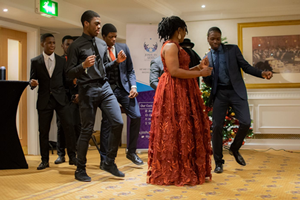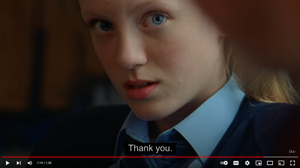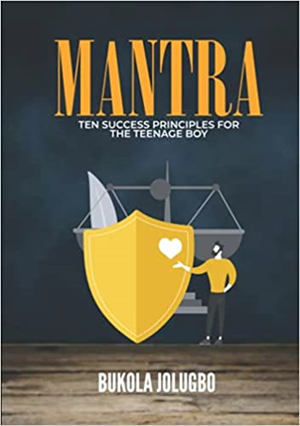At the Service Design in Government conference in September 2022, Bukola Jolugbo (Kiki) and I talked about some aspects of life today for teenage boys in the UK, focusing on the experience of Black teenagers.
Many of us know little about teenage boys
I started by asking us all:
- Do you have a have a teenage boy in our household?
- Do you spend time with a teenage boy most weeks?
- Have you done user research with teenage boys?
- Do teenage boys use your service?
Unlike me, many attendees do have a teenage boy in their household and so know something about them. But my experience of user research with teenage boys – I did some when working with the Open University about 15 years ago, but none recently – seemed typical as only a few people put up their hands when asked about that.
And most tellingly, only sprinkling of people raised their hands when asked whether teenage boys use their service. When preparing the session with Kiki, I had realised that for the vast majority of government services our answer to this question ought to be ‘yes they do’ – because people age 18 or 19 are both teenagers and legally adults.
Kiki talked about boys and mental health

Fortunately, Kiki knows a lot about teenage boys so I was grateful to hand over to her.
Kiki is the mother of two sons, one still a teenager and one who has just turned 20.
She also runs the Boyz2men institute, a 14-week course of hourly sessions that helps teenage boys to become responsible adults.
She gave us some startling statistics about boys and mental health.
- Young men report lower levels of life satisfaction than young women
- Teenage boys are more likely than teenage girls to suffer in silence and withdraw instead of seeking help
- Males are less likely to access psychological therapies than females:
only 36% of referrals to NHS talking therapies are for men - Males are three times as likely to have mental health issues as females
- From 1979 to 2005, the ratio of suicide in teenage boys to teenage girls changed from 3:2 to 3:1
Sources:
- Factsheet, SouthWest London and St George’s NHS Mental Health Trust (lots of references)
- Men and women: statistics | Mental Health Foundation (lots of references)
- House of Commons library briefing on Mental health statistics 2021 (England) (lots of links to current sources)
We can struggle to connect with teenage boys
Kiki summarised research that she decided to do on her own, which included interviews with Black teenage boys, interviews with their parents (some of whom have a teenage girl too), and a survey of Black teenage boys.
She shared some quotations from her research with parents:
- “He is in year 12 and needs to have started his UCAS prep. When asked for update, he gets upset and would rather not talk about it. I don’t know why he struggles with telling us how he feels or about his progress.”
- “No, I have to plan my conversation with him ahead if not I won’t be able to get across. It is even worse when the conversation is with the whole family. It is not a good idea, but texting him gets me better results.”
- “I manage sometimes but I feel it could be better, like it used to be before his 12th birthday. One thing I feel he hates is engaging in difficult conversation. I keep trying but I can do with some help.”
- “Oh it is 100% easier and more productive to have a conversation with his older sister. He is always ‘fine’ and ‘got it under control’. I don’t know why it is this tough to get through to him.”
This resonated with me, because a friend had recently told me that her son had severe mental heath difficulties that started as a teenager. She’s happy that he now feels able to share his feelings with her and is mostly a lot better – but it’s taken him 15 years of hard work to get to that point.
Teenage boys are not seen as responsible
The Black boys reported that they also struggle with being seen as irresponsible at best, or even as potential criminals.
Colleagues will provide support or give responsibility to a young girl in the office over a young boy:
- “There is a message for a volunteer to do a presentation, I offered because I’ve been writing the presentations for my boss all along. What I got as the response was “thanks but no, we need a more experienced person for this one”. My thought is, how do I gain experience if I am not trusted with responsibilities?”
- “Last week, the presentation I prepared was given to A instead of allowing me to present it.”
- “I try to express how I feel but I really don’t want anyone saying ‘there he goes, a black boy’.”
Kiki shared the story of working in a big supermarket. When a group of teenage boys came in, all the video cameras were moved to track them – and the white women shoplifters knew that, taking advantage of the change in focus to pilfer. Boys shared similar experiences in her research:
- “Being a teenage boy is like a crime – for us to be heard, we have to go over and above. We struggle to be heard.”
- “When I walk into a shop with my friends, people stand to attention and start to watch us. We get attention just because we are teenage boys.”
Teenage boys can withdraw
Although we adults may want to communicate with teenage boys, and they may even want to communicate with us, there are some conflicting views around.
We can think: they don’t want to be connected.
They may think:
- I’m not supposed to “be weak” so why connect?
- I don’t know how to connect
- Adults don’t respond to me when I try to connect
Teenage challenges can be stereotyped as a ‘girl thing’

We all watched the video of an advertising campaign #BritainGetTalking, run by the mental health charities Mind and Young Minds UK supported by the ITV television channels.
I’d been struck by the video. A teenage girl comes home from school, and exchanges some remarks with her father while they share a cup of tea. The video is captioned with the subtext of what they mean – for example, the still I chose shows the subtitle ‘Thank you’ while the girl says ‘Actually, Dad’. It’s a lovely story and shows the power of an adult gently persisting through initial remarks to get to an underlying subtext that creates confidence about sharing.
But as we all watched it after hearing about Kiki’s research, we noticed that we saw it differently. We realised that mental health and other teenage challenges are not only experienced by girls, and that a cup of tea and a few sentences may not be nearly enough to create a connection with a teenage boy.
Watch the Britain Gets Talking video on YouTube.
Kiki teaches Success Principles

Kiki provides help in her book Mantra: Ten Success Principles for the Teenage Boy. In the session, she briefly introduced us to the principles:
- Choices: be mindful about your choices and own them
- Attitudes: choices open doors for you, attitudes are what keeps you in the room
- Kindness: being kind isn’t being weak, it’s being human (listening and hearing)
- Self-control: ‘no’ means ‘no’, respect ‘no’ when you hear it and say ‘no’ when you need to
- Giving: be generous, think about what you can do to make someone else’s day better
- Forgiveness: let go of bitterness to improve your own wellbeing
- Courage: be willing to dream big and to pursue your dream
- Integrity: let your ‘yes’ be ‘yes’ and your ‘no’ be ‘no’.
- Love: make yourself open to approach others with a joyful heart
- Purity: celebrate life like a child, who sees everything from a good place
We reflected on the principles
To wrap up the session, I first suggested that we might think about applying these principles ourselves as adults. For example, I can relate to the benefits of forgiveness – it’s not always easy to ‘let go of bitterness’ but it certainly does ‘improve your own wellbeing’.
Then I suggested that we might think about whether we could use the principles in our services. Maybe some of them don’t work at all in the context of service design, but perhaps others might. What if we thought more about kindness? Perhaps even when doing something as mundane as writing error messages?
Thank you to everyone who came
We got some lovely audience contributions, which we really appreciated. People reflected on their own experiences with teenage boys, and also on how their experiences as teenagers had shaped them and continue to do so.
Find the slides or contact us
You can:
